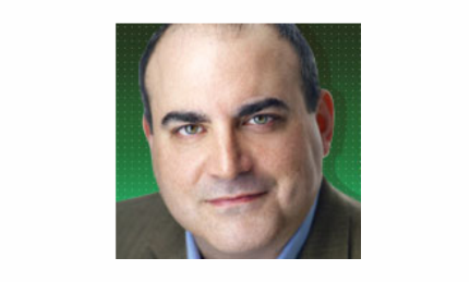The Free Flow of Information Act - Shelly Palmer - MediaBizBloggers

In his opening remarks for the Free Flow of Information Act Executive Business Meeting held on September 10, 2009, Senator Patrick Leahy (D-VT.), Chairman, said:
"A free and vibrant press is essential to a free society. That is why I have worked hard to enact a meaningful Federal shield law. All of us – whether Republican, Democrat or Independent – have an interest in enacting a balanced and meaningful shield bill to ensure a free flow of information to the American people. Forty-nine States and the District of Columbia currently have codified or common law protections for confidential source information. But, even with these State law protections, the press remains the first stop, rather than the stop of last resort, for our Government and private litigants when it comes to seeking information.
Scores of reporters have been questioned by Federal prosecutors about their sources, notes and reports in recent years. This is a dangerous trend, that has had a chilling effect on the press and the public's right to know.
Enacting the Free Flow of Information Act – which carefully balances the need to protect confidential source information with the need to protect law enforcement and national security needs – would help to reverse this troubling trend and benefit all Americans.
The substitute, which Senator Schumer and Senator Specter have circulated and will offer, creates a qualified privilege to protect journalists from being forced to reveal their confidential sources. The bill contains exceptions to the privilege for criminal conduct and national security. No one would quibble with the notion that there are circumstances when the Government can and should have the right to compel information to keep us safe. But, many newsworthy stories concerning national security issues were published with the help of confidential sources, to the great benefit of the public.
The Federal shield legislation strikes the right balance among these important objectives. Several Federal courts have recognized a reporters' privilege either by statute or common law for years. There is no evidence of a single circumstance where the privilege caused any harm to national security or to law enforcement.
After years of debate and countless cases of reporters being held in contempt, fined and even jailed for honoring their professional commitment not to publicly reveal their sources, the time has come to enact a balanced Federal shield law. I encourage all
Members of the Committee to support this important bill."
Just to review, here is the actual text of the 1st Amendment to the Constitution of the United States.
I. Congress shall make no law respecting an establishment of religion, or prohibiting the free exercise thereof; or abridging the freedom of speech, or of the press; or the right of the people peaceably to assemble, and to petition the Government for a redress of grievances.
You could read the 1st Amendment and come away with the notion that you were entitled to "freedom of speech." After all, it says so, doesn't it?
Well, not exactly. If you attended grade school in the United States you will probably remember when your social studies teacher posed the question, "If you are entitled to free speech, can you scream 'fire' in a crowded theater?" The answer was "No," and everyone got to debate the relative merits of the Bill of Rights and how the law applies in the real world.
Over the years, you have probably seen some legal documents and court decisions that speak about the 1st Amendment granting us "Freedom of Expression." This is legal shorthand — the word "expression" is not used in the paragraph. George Bernard Shaw once said, "Every profession is a conspiracy against the laity" and this is certainly true here. We do not have the freedom to "express" ourselves — at least not the way expression is defined in the dictionary. "Freedom of Expression" is a legal term of art that combines the legal notions contained in the 1st Amendment.
I do believe that a "free and vibrant press is essential to a free society." However, it's 2009, not 1791, and a couple of things have changed. First and foremost, there are well over 20 million active websites in the United States and they are all written by someone. There are hundreds of thousands of news and pseudo-news sites and they are all written by someone. There are countless blogs (including this one) and they are all written by someone. Who are the journalists? This is a non-trivial question. Are bloggers considered journalists? Are some of them? Which ones? The good ones? The popular ones? The ones who work for big corporate media? Who will be protected by this Federal Law? Who will be able to hide behind it? How will we sort it out?
My cynical side can easily imagine a class of criminals who could easily hide behind this kind of law. Truly, it's not 1791, everyone with a computer or a smartphone can publish their writings worldwide in an instant ... does that make them journalists?
This is an extremely complex issue and it is going to become more complex as networks and communications tools evolve. The leadership is obviously trying to ascribe some extraordinary rights to a class of news reporters and thought leaders that (due to lack of advertising and subscription revenue) is quickly going extinct. Perhaps there is a lingering notion of the Judith Millers of the world. Back in 2005, she served 85 days in jail for refusing to reveal her source on the Valerie Plame story. As she was taken away, she is quoted as saying: "If journalists cannot be trusted to guarantee confidentiality, then journalists cannot function. There cannot be a free press."
That was then. In the information age, there is simply no place to hide.
When everyone is the press, and we are all free to publish, the truth will out and sources will reveal themselves. It is the very nature of social media and it is the natural evolution of our, very American, 1st Amendment Rights.
Shelly Palmer is the host of MediaBytes with Shelly Palmer, a daily show featuring news you can use about technology, media & entertainment. He is the author of Television Disrupted: The Transition from Network to Networked TV (2008, New York House Press) and the upcoming, Get Digital: Reinventing Yourself and Your Career for the 21st Century Economy. (2009, Lake House Press). Shelly is also President of the National Academy of Television Arts & Sciences, NY (the organization that bestows the coveted Emmy Awards). For information about Get Digital Classes, visit http://www.shellypalmer.com/seminars
Read all Shelly’s MediaBizBloggers commentaries at Shelly Palmer - MediaBizBloggers.


